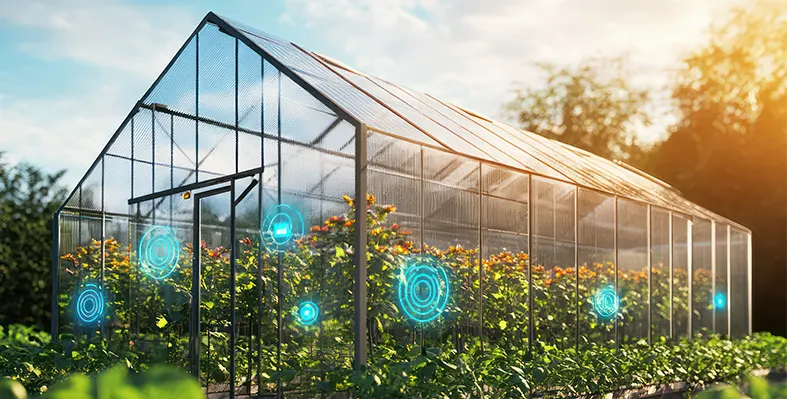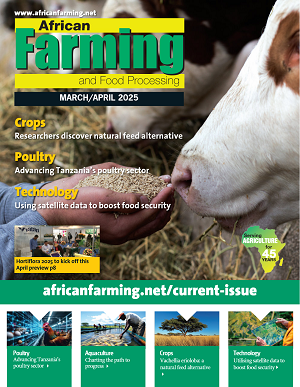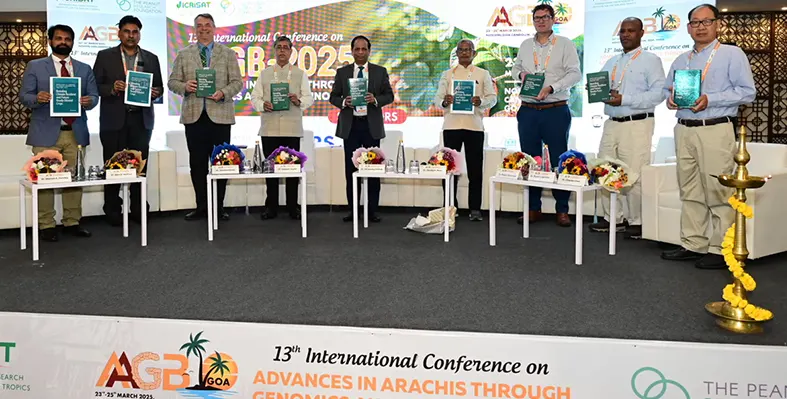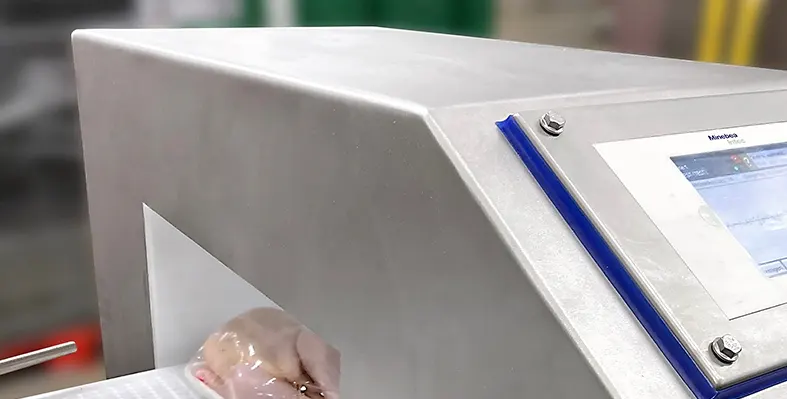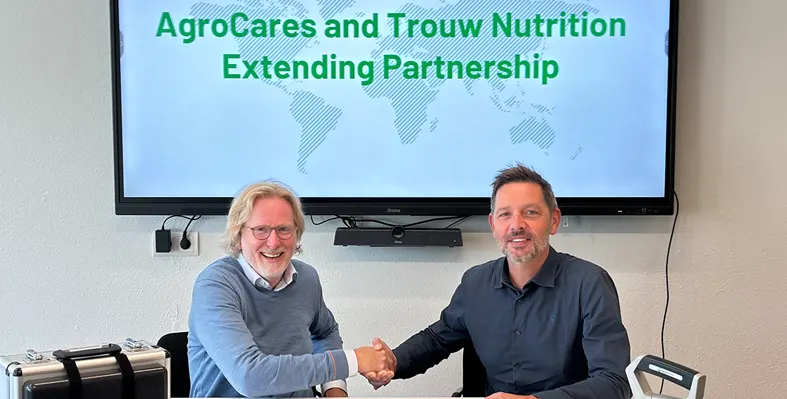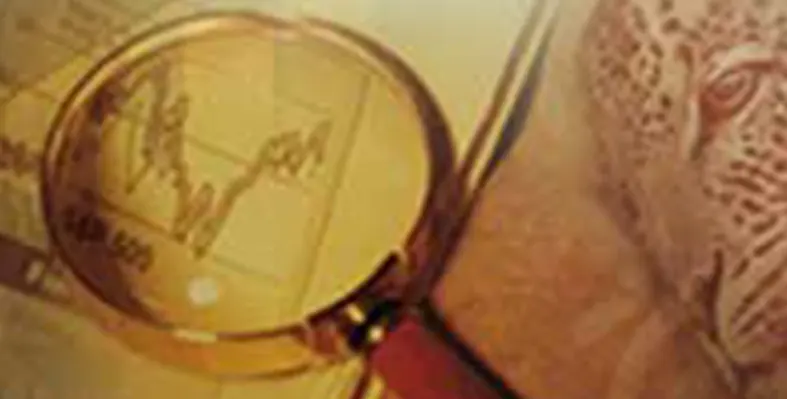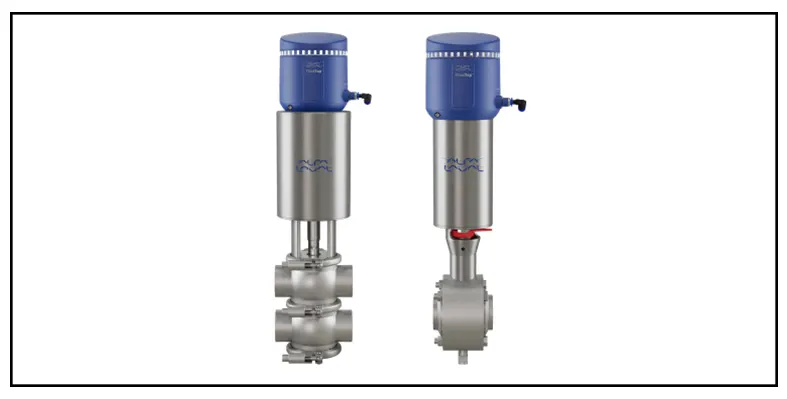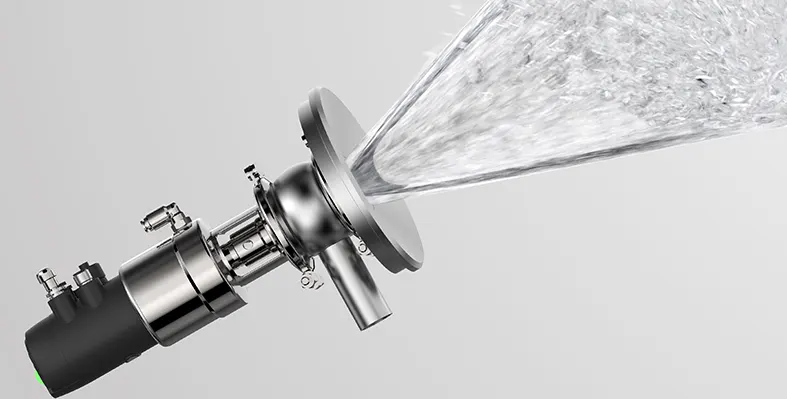In The Spotlight

The project is designed to validate wheat germ cell-free protein synthesis as a rapid and affordable approach to drug development. (Image source: Adobe Stock)
WHEAT project to revolutionise drug manufacturing
Wamego-based company, Tritica Biosciences, along with three other partners have joined hands to work under Boston-based Ginkgo Bioworks, on a million-dollar project aimed at exploring the potential of the wheat crop in transforming drug development
The project is designed to validate wheat germ cell-free protein synthesis as a rapid and affordable approach to drug development. This powerful innovation introduces a new method of biomanufacturing that has broad applications across various sectors ranging from food to pharmaceuticals.
The ARPA-H project, known as Wheat-based High efficiency Enzyme and API Technology (WHEAT) is one of the first initiatives within ARPA-H’s Scalable Solutions Office, which aims to transform the health by improving the speed, scale and access to medical treatments.
The project aims to boost domestic manufacturing of critical medicines by producing them when and where they are needed. Many active pharmaceutical ingredients (APIs) are currently affected by fragile global supply chains, and reshoring biomanufacturing will help stabilise the supply of critical, life-saving drugs.
According to a news release from Ginkgo Bioworks, WHEAT’s innovations will include post-translational modifications to establish a foundation suitable for producing biologics.
“By harnessing the power of wheat based cell-free systems, we’re planting the future of medicine, helping to make production more efficient, flexible and localised,” said Dr Chris Miller, founder and CSO, Tritica Biosciences.
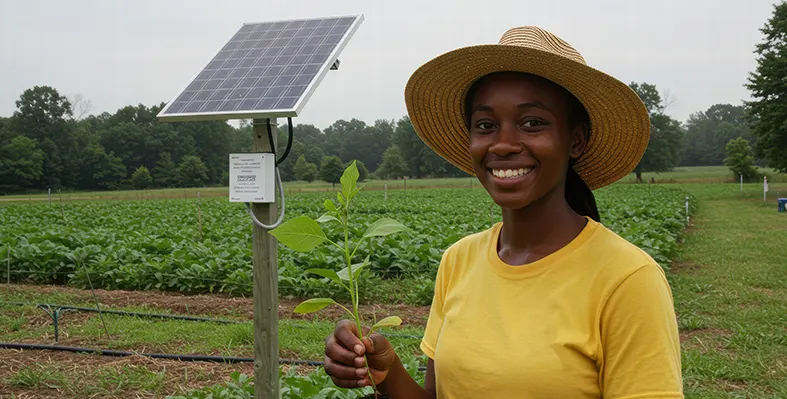
Having worked on 13 farms in Angola, Acelera Agro has been successful in equipping farmers with essential skills. (Image source: Adobe Stock)
Women-led accelerator plans to revive food security in Africa
As wealthy nations continue to destroy Africa’s agricultural landscape with their vast industrial food systems, farmers, particularly women, belonging to areas that face a dearth of resources are bearing the brunt
Founded in Angola by CEO, Soha Nasser and the region’s startup incubator and accelerator, Acelera Angola, Acelera Agro is an agricultural accelerator that aims to create environmentally friendly solutions that have a global impact. The model focuses on five pillars that include adaptive farming, eco-friendly production, food innovation, circular economies and the water-energy-food nexus. Taking Angola’s unique ecological challenges into consideration, the organisation works on aligning farming practices with these challenges, in turn strengthening food security and resilience, while significantly bringing down emissions.
Having worked on 13 farms in Angola, Acelera Agro has been successful in equipping farmers with essential skills that boost biodiversity in soil systems, conserve water and contribute to regenerative fertilisation and land management. Precision agriculture and circularity are two of the most important pillars of Acelera Agro’s work, comprising data-driven practices that enable efficient resource and pest management, while also minimising water and energy usage from field to food processing. Acelera Agro has also been working on expanding its network across across sub-Saharan Africa through various strategic partnerships with organisations such as Climate KIC. Climate-resilient agriculture involves numerous complexities, many of which can be tackled using valuable tools developed by sustainable agriculture experts trained through such partnerships.
In an article published on Climate KIC, Nasser stated the positive impact the programme had had on their work. She further emphasised how the programme had profoundly influenced her approach to sustainability, particularly her knowledge about circularity, which she describbed as being an ‘eye-opener’.
“It moved beyond recycling and valorising side streams to present a structured approach to circularity. It gave me a new framework to think about sustainability,” Nasser said. In addition, she also highlighted the valuable insights she gained into the challenges involved in gaining financial support.
Women empowerment remains a key priority of the programme, aiming to narrow the gender gap in agricultural leadership.

Evfarmer enables individuals worldwide to participate in large-scale agricultural projects, earning stable returns while supporting global food production. (Image source: Evfarmer)
Evfarmer enters Sierra Leone market
Global leader in innovative agricultural finance, Evfarmer marked a significant milestone by officially entering into the Sierra Leonean market with the aim of supporting agricultural development and economic transformation in emerging markets
The company’s presence is expected to inject new vitality into Sierra Leone’s agricultural economy and support the transformation of local agricultural enterprises. With agriculture being the cornerstone of Sierra Leone's economy, Evfarmer’s market entry is a direct response to the government's call for greater private sector participation in accelerating these efforts.
As part of its strategic expansion, Evfarmer will leverage its advanced fintech platform to connect local agricultural producers with a global community of agricultural supporters and investors. This initiative will provide Sierra Leonean farmers with much-needed financial support, cutting-edge technology, and sustainable farming solutions, helping to strengthen the country’s agricultural sector and drive broader economic growth.
Through its digital platform, Evfarmer enables individuals worldwide to participate in large-scale agricultural projects, earning stable returns while supporting global food production. This unique model allows agricultural supporters to invest in farm projects across multiple countries via the Internet. With Sierra Leone now part of its network, Evfarmer is fostering a mutually beneficial, resilient, and fast-growing ecosystem.
“We are honored to bring our innovative financial solutions to Sierra Leone at such a critical time,” said Jessica Smith, manager at Evfarmer. “Our goal is to empower local farmers by providing early-stage financing that overcomes traditional banking barriers, enhancing productivity, and unlocking new economic opportunities.”
Agritech West Africa
Venue:
Accra International Convention Center
Accra, Ghana
Dates:
15 - 17 March, 2023
Website:
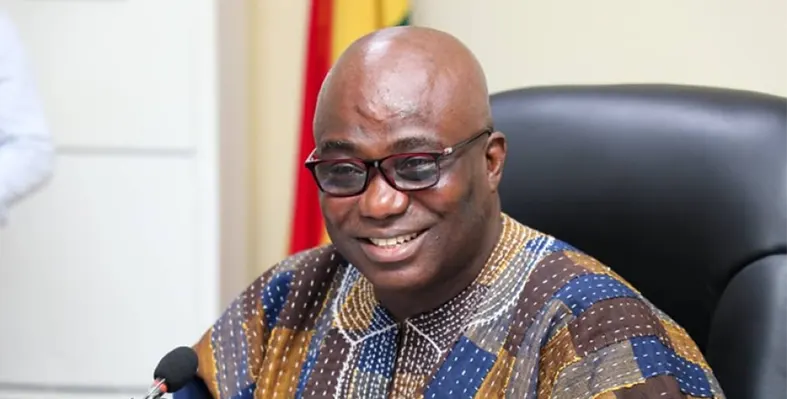
The programme is an initiative designed to transform the country's agricultural landscape. (Image source: MOFA)
Ghanian Minister unveils Feed Ghana programme
Ghana's Minister of Food and Agriculture, Eric Opoku recently held a public briefing on the innovative 'Feed Ghana Programme,' representing a crucial step forward in tackling Ghana's pressing agricultural challenges while enhancing food security and economic stability
The programme is an initiative designed to transform the country's agricultural landscape. It aims to enhance local agricultural production, minimise reliance on food imports, and create sustainable job opportunities, while also aiming to improve livestock production, foster industrial crop cultivation, and developing the oil palm sector to close the country’s consumption gap. Key features of the initiative include establishing farmers' service centers, promoting the development of grains and legumes, and introducing cutting-edge technologies, such as controlled environment farming and greenhouse cultivation.
The Minister outlined various initiatives to support institutional farming, including partnerships with national institutions and religious organisations to rejuvenate the poultry industry through a new 'farm to table project.' Opoku further announced plans to invest in agricultural infrastructure, which will significantly enhance food security, boost exports, and create jobs, ultimately contributing to Ghana's long-term economic growth.
In his address, Opoku underscored the vital role of a robust agricultural sector in national development. Despite Ghana's rich agricultural potential, the Minister recognised the obstacles that smallholder farmers face, including production inefficiencies, inadequate infrastructure, limited access to financing, and a lack of mechanisation. He also highlighted the problem of post-harvest losses stemming from insufficient storage and processing facilities, poor transportation networks, and weak market integration.
To combat these challenges, the Feed Ghana Programme will form part of Ghana's Agriculture for Economic Transformation Agenda (AETA), which is set to be launched by His Excellency John Dramani Mahama on 12 April 2025, at the Methodist School Park in Techiman, Bono East Region. The minister further announced plans to invest in agricultural infrastructure.
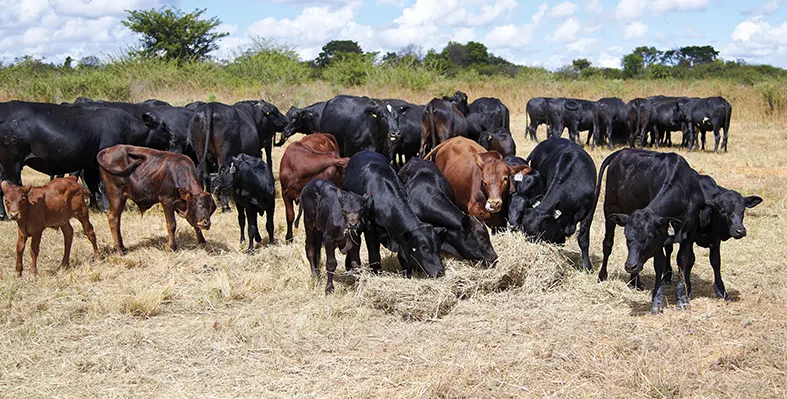
ILRI is helping to shape a sustainable future where livestock systems are both productive and climate resilient. (Image source: ILRI)
Million dollar global initiative to bring down livestock methane emissions
The International Livestock Research Institute (ILRI) recently entered a collaboration aimed at reducing methane emissions from livestock
Backed by theBezos Earth Fund and theGlobal Methane Hub, IRLI's partnership with the new US$27.4mn global initiative will identify and scale climate-efficient livestock by providing ample support to research and breeding programmes across North America, South America, Europe, Africa, and Oceania.
ILRI’s leadership in the Global Methane Genetics Initiative, coupled with its contribution to the Low Methane Forage project highlights its central role in delivering integrated, climate-smart livestock solutions for the Global South. These two complementary efforts have enabled ILRI to tackle enteric methane emissions from both the genetic and nutritional fronts—two of the most promising and scalable strategies for mitigating livestock emissions without compromising productivity.
The genetics initiative enables African production systems to choose cattle breeds that naturally emit lower emissions, while the Low Methane Forage project identifies and deploys anti-methanogenic, high-yielding tropical forages suited for smallholder and pastoral systems. These projects in combination with each other demonstrate ILRI’s commitment to advancing science-based innovations that are practical, inclusive, and tailored to the realities of livestock keepers in Africa and beyond. By aligning research, capacity building, and deployment with national and regional needs, ILRI is helping to shape a sustainable future where livestock systems are both productive and climate resilient.
The initiative is also part of the Global Methane Genetics initiative that works by screening more than 100,000 animals, collecting methan emissions data and integrating findings into public and private breeding programmes. By making methane efficiency a standard part of livestock breeding, the initiative marks a turning point for climate-smart livestock development in Africa.
"By harnessing the power of genetics and data, we are equipping farmers with the tools to breed more productive, resilient, and lower-emission animals. It is a bold step towards aligning Africa’s livestock systems with global climate goals, while enhancing livelihoods and food security," said ILRI’s director general, Appolinaire Djikeng. "ILRI is proud to lead this effort in close partnership with national and international collaborators including Agriculture Research Council, South Africa, the Agricultural Research Centre for International Development (CIRAD), Burkina Faso and Universite d’Abomey-Calavi, Benin.”
In the long run, the approach will keep diets, infrastructure and productivity intact, while at the same time contributing to an overall 30% reduction in methane emissons in cattle over the next two decades. This also includes an annual reduction of 1-2%.

Given its vast and largely untapped economic potential, Nigeria’s cocoa value chain could act as a core pillar of Nigeria’s non-oil exports. (Image source: Cultivate Africa)
Agro-investor calls to revive Nigeria’s economy through cocoa value chain
As Nigeria’s economy faces rising inflation, agro-investor and managing director of Cultivate Africa, Dr Dominic Joshua, has issued a call to action aimed at leveraging the cocoa value chain to revive the region’s economy
According to Dr Joshua, Nigeria continues to export raw cocoa beans while forfeiting billions in potential revenue that could be gained from local processing and finished goods export. He envisions a transformation where at least 50% of cocoa production is processed locally, creating thousands of jobs, generating stable forex, and revitalising rural economies.
Given its vast and largely untapped economic potential, Nigeria’s cocoa value chain could act as a core pillar of Nigeria’s non-oil exports. Dr Joshua emphasised that developing agro-industrial clusters and ensuring access to credit for smallholder farmers would make this possible.
Moreover, youth entrepreneurs have expressed a growing interest in agribusiness. However, access to mentorship, funding, and infrastructure remains limited. To address this, Dr Joshua has advocated for a public-private partnership model, wherein the government provides infrastructure and enabling environments, while private investors focus on innovation, scale, and export competitiveness.
In a recent thought leadership piece, Dr Joshua outlined the following four policy actions that could unlock this transformation:
- Streamlining export regulations to eliminate bureaucratic inefficiencies.
- Creating agribusiness-specific funds offering low-interest loans.
- Providing technical training across the cocoa value chain.
- Launching awareness campaigns to promote agribusiness among youth.
“Agribusiness is not a fallback. It is Nigeria’s future,” Dr Joshua stated. “If the nation invests in what it grows and processes what it produces, it can transform cocoa from a forgotten commodity into a currency of sustainable prosperity.”
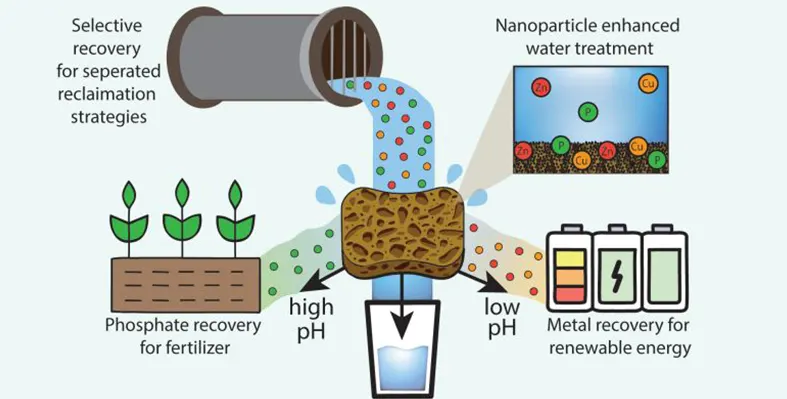
Illustration showing how the sponge nanocomposite material recovers phosphate and metals from water. (Image source: Kelly Matuszewski, Northwestern University)
Specialised sponge developed for stormwater recycling and reuse
Researchers have created a functional sponge that is capable of efficiently soaking up certain pollutants from water and then releasing them on demand
Industrial manufacturing and agriculture, in particular, experience mineral and fertiliser loss due to runoff, leaving valuable non-renewable resources as pollutants in bodies of water. Those resources include heavy metals like zinc and copper and also phosphate.
The innovation presents a reusable and low-cost solution for cleaning storm runoff while simultaneously recovering valuable metals like zinc and copper, as well as phosphate. Using surface iron oxide nanoparticles specialised for capturing specific contaminants, the sponge collects the minerals and then discharges them only when triggered by changes in pH. These findings were achieved by researchers at Northwestern University and published in the American Chemical Society's journal Environmental Science and Technology Water.
Doctoral student and first author on the paper, Kelly Matuszewski believes it is important to understand the interaction between these minerals and utilise them, rather than finding ways to discard them. Through her research she discovered that lowering water pH flushed out the captured copper and zinc from the sponge, while raising water pH loosened the phosphates.
In an attempt to commercialise the sponge-based technology, Vinayak Dravid, co-author and Northwestern professor of materials science and engineering has co-founded a startup with additional NSF support through the Small Business Innovation Research programme, which will further develop the material for real-life scenarios.
"The technology can be used as a universal sorbent or 'catch-all,' or it can be tailored to certain groups of contaminants like metals, plastics or nutrients," said Dravid. In their future research, the team plans to account for biofilms, clogging or water flow dynamics on the sponge's performance, while also testing the maximum mineral levels the sponge can absorb.




